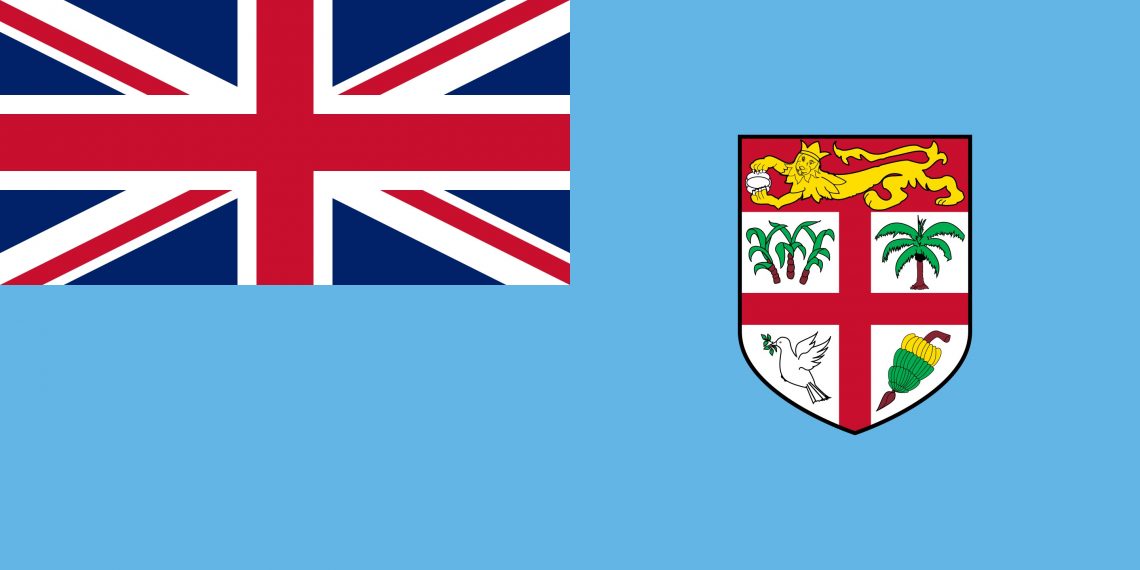
Viti Levu at Fiji
When people talk about Fiji, they almost always mean Viti Levu, the main island of the island state of Fiji.
Wikipedia knows the following about this country (small excerpt):
Fiji, officially the Republic of Fiji (in Fiji: Viti or Matanitu ko Viti; English Fiji or Republic of Fiji), is an island state in the South Pacific north of New Zealand and east of Australia. Fiji has been independent from the United Kingdom since 1970, since then a member of the Commonwealth of Nations, initially as a monarchy with Queen Elizabeth II as head and since 1987 a republic with the capital Suva on the island of Viti Levu. Since the democratic election on September 17, 2014, Fiji has been a parliamentary democracy.
Fiji’s recent history has been dominated by the conflict between the indigenous Fijian majority and the country’s Indian-origin minority.[6] Fiji is one of the most populous island archipelagos in the Pacific.
I have already mentioned elsewhere that I was particularly impressed by how warmly the population generally treats one another, at least everyone we have met so far.
What I mean by this is that tourists – and not only them – in many other countries and also in Germany are only treated kindly because they could gain possible advantages. This is the kind of professional kindness that dies the moment there is no direct contact. It’s that fake, basically fake, smile that I hate so much! It’s this servile “I like you” as long as I get something out of it.
No, years ago we had a hotel room from which we could look out the bathroom window at the hotel’s depot. Every morning we were woken up by the laughter of people preparing for the day’s certainly strenuous work. And during this stay we traveled far off the beaten tourist path and repeatedly met warm and friendly people in the tiny villages.
And that despite the fact that sometimes it really thunders here and it rains like cats and dogs. An old man wanted to show us a cave not far from the place where the first settlers landed. This cave is now used by the local residents to protect themselves from hurricanes. That doesn’t have much to do with life in paradise, and yet the people here are mostly content and happy with life.
One day we drive in a rental car to what is supposed to be the most beautiful beach in Viti Levu. The Intercontinental has spread out there at the southern end of the beach. And yet, when we arrive there, we are greeted by many voices of children’s laughter. Two fishing boats invite the children to take a tour for a quarter of an hour. And here too, the children’s joy is unmistakable.
Quite apart from that: Natadola Beach is really beautiful, the finest sand, which initially slopes relatively steeply towards the sea and then leads gently into the water. And then the water – totally soft and wee warm, as they would say in Franconia. We estimate the temperature to be a good 28°C; maybe even a little warmer.
Here, the locals offer, among other things, horses that you can ride along the beach. In addition, like almost everywhere on the beaches, there are a number of huts available for massages. Of course, not just huts, but also the masseuses that go with them! Apparently this is a profitable business, because there are probably ten such huts next to the InterContinental, some of which have at least six massage tables in them.
On the other hand, I think that if only one customer per day per provider can be treated for 40 FJD, the business should definitely be worth it compared to the usual income structure in the country. In hotel spas, the same service often costs twice as much.
Coconuts are also sold not only in the numerous stalls on the side of the road, but also here on the beach. For 10 FJD we get a fresh coconut – delicious! Unfortunately, we don’t have any tools with us to scrape the pulp from the peel in addition to the milk. That’s why we make a note to never go exploring without a spoon again!
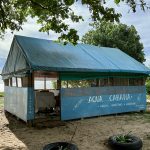
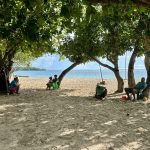
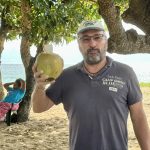
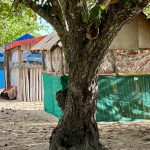
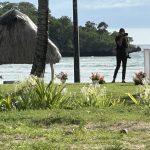
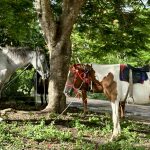
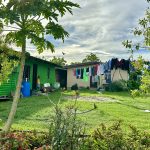
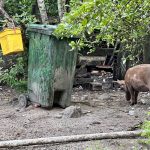
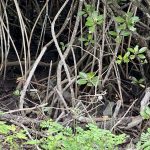
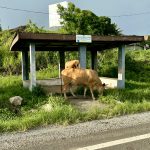
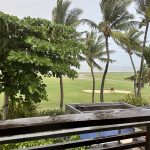
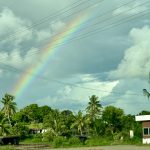
2 Comments
Pingback:
Pingback: